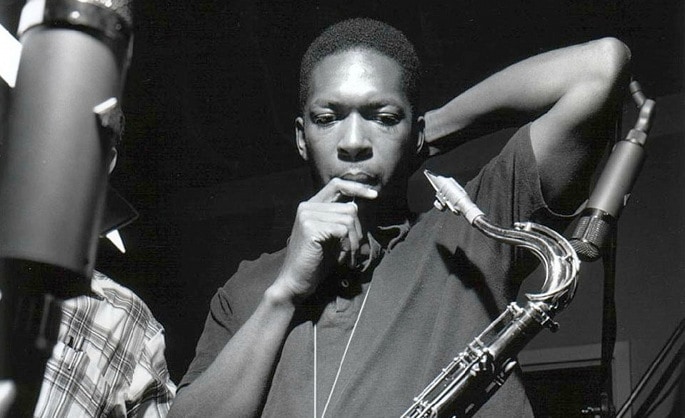Musicians have a lot to offer the world in the form of an art with the ability to touch most every aspect of one’s life. However, the world of music also offers numerous examples of effective leadership and how people can work together to achieve great things.

Musicians, like executives, face a lot of challenges at their workplace, and their ability to deal with these challenges have a significant impact on their success or otherwise. Some of these challenges include how to foster teamwork, dealing with change, achieving performance value and competing to succeed – challenges that any business executive would be familiar with.
In fact, in her article, Marla Tabaka recommends joining a band to fine tune one’s leadership skills:

If you want to build upon your leadership skills you could spend some time reading biographies of history’s most successful people, from Esteé Lauder to Bill Gates. These folks are great virtual mentors. Don’t stop at the books though; pick up an instrument, sign up for music lessons, and try out for a spot in a local band.
Research shows that people who learn to play an instrument and go on to play with bands or other musical groups develop strong leadership skills. Via Inc
On his part, Simon Tam shares five leadership lessons musicians can teach the world:
- A leader needs a vision, dream or goal

Before putting his or her musical piece on a score, a musician can already visualize the music. In the same way, leaders need to have a sense of where they are going, be empowered by this and share this with others to empower them as well.
In 2010, Lady Gaga tweeted a photo of herself standing in front of the marquee at Madison Square Garden. Later that night, she explained how she would dream that one day her name would be in lights at the venue. She visualized the experience and used it to fuel her passion, guide her career decisions, and shared her dream with her core team so that she could be held accountable to it. Via Huffington Post
- Leaders recognize their need for others
The best musicians are those that support their fellow musicians. Leading is music is about helping others perform their best work – not just expecting them to.
Those who say “it’s lonely at the top” don’t recognize the support of those following them. Unfortunately, it’s not possible to have a sustainable music career without followers.
…The leadership proverb by John Maxwell puts it best: “He that thinketh he leadeth and hath no one following him is only taking a walk.” Leaders can learn from musicians in building that support network by adding value to others, deeply caring about their followers, and recognizing that big dreams require a team. Via Huffington Post
- Leaders need to learn ‘informed improvisation’
Effective leadership demands that one is able to make smart decisions even when under intense pressure. Such ability is only possible when you are well informed on everything around you so you can accurately anticipate the result of your decision.

John Coltrane, arguably the most influential saxophonist of all time, dazzled fans with his tenor-saxophone improvisation in “Giant Steps.” While the definition of improvisation implies that something is created without preparation, that’s only a half truth: Coltrane, and artists who excel at improvisation, are only able to do so because of the extraordinary lengths they’ve taken to learn and hone their craft. Musicians can often anticipate notes and sounds, which allows them to take informed risks in the moment. Via Huffington Post
- Leaders are about making others look good
Like any great musicians, good leaders are willing to take a humble posture and put their team’s accomplishments above their own. A leader’s success is not independent of his or her team’s success.
Shortly after his death, footage of Michael Jackson rehearsing was released showing his vast attention to detail for the show and his commitment to make sure that everyone on stage looked and sounded perfect. He cared about how the entire ensemble looked, not just himself. Via Huffington Post
- Leaders are self-disciplined

Successful leaders are those that work the hardest and the smartest. They have high expectations for themselves and their team, which is only possible when they make appropriate plans and follow through on the same.
There’s a stereotype that glamorizes the life of touring artists that persists. However, that kind of lifestyle isn’t sustainable for personal health or delivering the best performance possible. In my band, we have a signed internal agreement about keeping sober on stage, maintaining our own skills and equipment, and having a schedule that allows for rest and recovery.
…If we consistently indulged in parties or slacked off, the shows would fall apart. Via Huffington Post
Featured Image: Image Credit
If you want to go fast, go alone. If you want to go far, you need a team. John Wooden #leadership pic.twitter.com/BFiPtwcYeP
— Roy Bennett (@InspiringThinkn) February 5, 2016
“A man who wants to lead the orchestra..” @10MillionMiler #quote #leadership #inspiration RT @exploregod pic.twitter.com/C3B9Zk7yLQ
— Wright Thurston (@10MillionMiler) February 5, 2016
Related Articles:
What does being a musician teach me about leadership?
I love being a musician. I specialize in an instrument that few other people play. I add a sound to my symphonic band that mellows out the group, and creates a unique bass sound that keeps things interesting. However, I am just an amateur surrounded by fine talented musicians. My time with a concert band is simply a break from the other work that I do.
I have noticed that being a band member teaches me some valuable lessons on leadership. There are parallels to musicianship and leadership. May I share with you what I have noticed? Via LinkedIn
What great conductors can teach us about leadership
Itay Talgam believes in the gift of the gap. He also believes you should embrace your own ignorance which, after all, is an opportunity. En route to the missing, you’ll discover the unexpected.
There is no snappy definition of a Talgam-type ‘gap’. A conductor trained under all-round musical giant Leonard Bernstein, he has worked with orchestras including the St Petersburg Philharmonic and Israel Philharmonic. And since he now teaches leadership to Fortune 500 companies, academic and non-profit organisations, I reckon he might prefer us to show some initiative and create our own gaps. Via Management Today
The Whiplash Effect: Rethinking The Lessons Of Musical Leadership
For many years, the conductor leading an orchestra has provided a useful metaphor for thinking about how to lead diverse talents gathered around a shared purpose. The metaphor assumes multiple forms, of course, from the commanding George Solti to the inspiring Gustavo Dudamel. A favorite TEDTalk, by Italy Talgam, captures the power and complexity of the orchestra leader’s role by exploring the styles of six different conductors.
Since at least the mid-1990s, another musical metaphor has held increasing sway in discussions of contemporary leadership and creativity: the leader of a small jazz ensemble. This figure commonly facilitates soloing and supporting, encourages experimentation and accepts the resulting mistakes. Via Forbes

